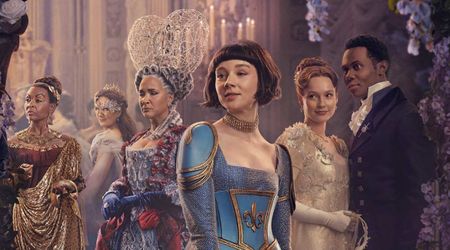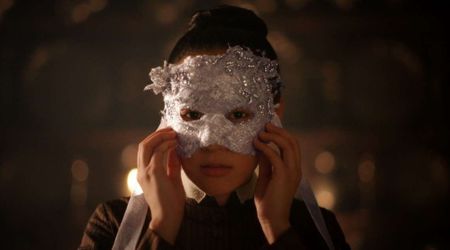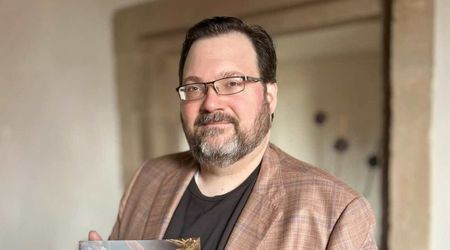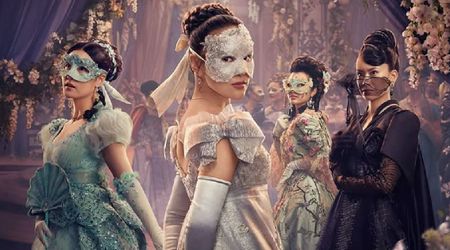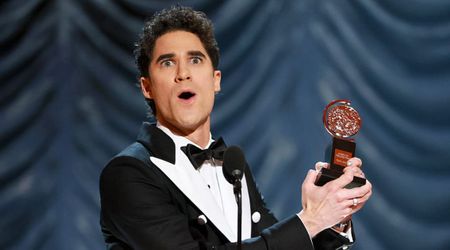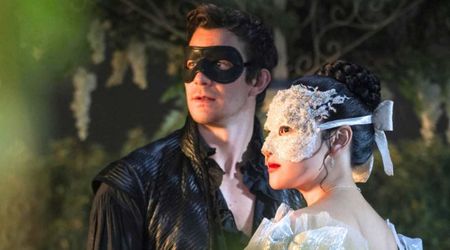Why Hollywood's penchant for Queerbaiting is giving the LGBTQ community sleepless nights

As the world has become more accepting of the LGBTQIA+ community and lifestyle, we have seen the TV and film industries take major strides in doing the same, incorporating openly-gay or openly-transgender characters who often play significant roles in the plotline. Sure, the shows and movies which portray these characters as central to the story, and not just a sidekick who is disposed of when the time calls for it, are few and far between, but the progress in the last decade or so is undeniable.
Yet, a lingering feeling remains that something is not quite right. That something feels forced; plastic; unnatural. Ask any member of the LGBTQIA+ community if they have any major problems with what is currently being shown on TV or in cinemas, they will point to a problem that has come to be known as 'Queerbaiting'. While queerbaiting has come to take on an array of different meanings, it is one particular manifestation of the term that irks the community the most.
In practice, queerbaiting in TV shows and movies is to repeatedly hint at, but then not actually depict, a potential same-sex romantic relationship between the characters. The script is often written in such a way that the homoerotic subtext between the two supposed romantic partners is clearly visible for even the painfully oblivious, but then, there was never an intention to elevate that subtext into something more concrete.
More often than not, that relationship or connection gets ignored, explicitly rejected and severed, or made fun of before those who eagerly waited to see their favorite pair get their romantic utopia have their hopes irreversibly dashed.
Many shows are guilty of queerbaiting and do so on the pretense of attracting the viewership of the now-large LGBTQIA+ audience. But what harm would come from giving this audience the ending they so desperately crave? The answer lies in the undeniably larger straight audience, many of whom are uncomfortable seeing the same-sex relationship play out on their screens and who might quit watching the show if it ever got to the point where they feel it's overshadowing the traditional heterosexual couple.
In the end, money talks, and losing that audience would hit the coffers much harder than losing the relatively smaller LGBTQIA+ audience would.
Emily Asher-Perrin, someone who has extensively written about the subject and works as a writer for Tor publishing, confirmed the same and said that the problem would persist as long as money was at the center of the issue. She clarified: "Most of the giant corporations who fund these shows and films and stories are clearly concerned about what happens to their bottom line if they put queer characters at the front and center of their narratives."
"It’s not true for every property, but it is true for many of them. It took Star Trek 50 years to finally show a gay relationship on a starship. We haven’t seen an openly queer character in any Star Wars or Marvel films, some of the biggest franchises the world has ever seen. J.K. Rowling told fans that Albus Dumbledore was gay after the Harry Potter series was published. Mega-companies aren’t about risk, they don’t care about being a part of the changes that make society better; historically, they come to the table after-the-fact, when they know it’s profitable."
Of course, there are fans who reluctantly accept queerbaiting as "a way to throw us a bone when we normally wouldn't have anything, to acknowledge that we're there in the audience when the powers that be would prefer to ignore us", but those are understandably in the minority. Most in the community are unsatisfied with the haphazard and poor representation they are given.
Queerbaiting's effect on queer fans has been summarized as "just enough [representation] to keep us interested, but not enough to satisfy us and make us truly represented," and it has been suggested to work because "it offers the suggestion that queer people do have a vital place in these stories, that they might even be the defining figures, the heroes. The suggestion, but not the reality."
The Guardian explained the term quite succinctly by drawing comparisons between it and another term which has exploded into mainstream conscience in the past decade or so: bromance. It's a dynamic that employs romantic tropes – building the characters' friendship and bringing them closer together, making them inseparable – but ultimately never fulfilling them.
While producers, directors, and writers may say that it's relatively harmless and all in good fun, it's been theorized to hurt the audience it's supposed to attract. A question that often pops when such a claim is made is "if the representations in question utilize humor, are queer people in on the joke or are they the joke themselves?"
Asher-Perrin told Meaww that many think that baiting the audience is 'harmless' and maybe kind of fun and said: "Unfortunately, we forget that queerbaiting has existed for ages, and definitely used to be a more intentionally malicious thing; back during the days of the Hayes Code, you weren’t allowed to portray queerness in Hollywood unless it was framed as something awful. Queer people could be alluded to on screen, but only if the narrative suggested that queerness was evil and/or that bad things happened to queer individuals."
"These days we have a very different problem; people queerbait in part because the question of 'who’s going to get together?' in a show is an aspect that powers viewership, and showrunners know that. Creators and writers will now often say 'we love the fans, and we encourage them to ship whatever they like!' And that sounds accepting and kind, but if you never have queer characters in your show or film franchise, then it’s disingenuous, full stop."
"It’s also pretty disingenuous to just add in new queer characters if your fanbase is pulling for someone who is already in the story to be queer. And this is even more of a problem if you end up killing off queer characters, have queer couples who end up tragically parted, or if you relegate queer characters to the sidelines and all your 'important' central relationships are straight. Creators want to build their audiences by using tried and true dramatic devices like romance, but when you have a fragment of the population who are always being toyed with when it comes to representation, you should be more sensitive to how these choices will resonate with them"
Queerbaiting often portrays these homosexual relationships as heterosexual, platonic relationships that were misunderstood, and Emmett Scout, who has written extensively on the controversial subject offered his thoughts on why that was a problem, stating that "this dynamic is often set up in such a way that the characters and creators must constantly remind us that the queering of their relationship is a joke or even a perversion of their friendship. Intentionally or not, this sends a message that a gay relationship is not only less interesting, but less deep, less valuable, and less pure."
Asher-Perrin also detailed how queerbaiting was so harmful to the LGBTQIA+ community: "Compulsory heterosexuality [meaning the automatic assumption and depiction of everyone being straight until 'proven' otherwise] is in the majority of media we consume. It’s harmful by omission; the instant that a queer character 'comes out' to an audience, it is often treated as though the writers 'made the character gay/trans/ace' to make a point, when the true problem is that the audience is assuming a default that shouldn’t exist. Anyone can be queer and they don’t have to make a big deal out of it. The LGBTQIA+ community knows this, and it’s painful to have it constantly questioned."
"Now we have another layer added onto this; getting 'hints' that one or two of your favorite characters could turn out to be queer. You often have to invest in a story longterm to get that payoff, and even then it’s not a guarantee. So it’s a waiting game that takes your time, attention, and energy (and fans pour a lot of those things into the stories they love), and at the end, you might be left with nothing. This happens to fans who root for straight couples too, but in that case, it’s an embarrassment of riches; they have practically all of the history of fiction to choose from and get invested in. Queer fans are still grasping for anything they can call their own, particularly in mainstream mass entertainment."
It's such a widespread problem that even some of the most critically-acclaimed shows are guilty of it. Off the top of the head, there's Gregory House and James Wilson in "House," Arthur Pendragon and Merlin in "Merlin," Betty Cooper and Veronica Lodge in "Riverdale," Jane Rizzoli and Maura Isles in "Rizzoli and Isles," Castiel and Dean Winchester in "Supernatural," and Sherlock Holmes and John Watson in "Sherlock."
You can't help but feel the frustration of the LGBTQIA+ audience. The relationship between Dean and Castiel – a pairing christened as 'Destiel' by avid fans of the series because of the pair's sizzling chemistry with one another – offers a brief glimpse into the problem plaguing the industry today.
In 2014, T.V Guide pointed out the show's queerbaiting problem, stating: "Supernatural producers have undoubtedly profited from the Destiel ship [characters Dean and Castiel] and encouraging ambiguity in Dean’s sexuality. As Cas and Dean’s relationship took on more importance in the series [and became based more heavily on romantic tropes] in Seasons 8 and 9, the ratings increased."
Played by Misha Collins, Castiel was supposed to be a short-term character on the show but was kept in by the writers because of his aforementioned chemistry with Jensen Ackles, who plays Dean. While an argument can be made that they were never meant to be romantically linked, the writers constantly played on the undeniable spark between the two, but never with the intention of solidifying the relationship, lest they scare the straight audience away.
Amongst all the shows on TV that queerbait, Asher-Perrin told us she felt that it was Supernatural that was arguably the most guilty because of how it portrayed that bond between Dean and Castiel. She explained: "That show has a very vocal fanbase, and a large portion of them are queer and female or non-binary. But the show was written in this very macho Americana mindset, and rather than let the characters evolve and address how the show portrayed masculinity, it kind of backtracked and doubled down on its original premise after a while."
"This isn’t to say that you can’t explore masculinity without making male characters queer, but there is an expectation that comes with 'manliness', being that it’s brutally heterosexual. And when characters like Castiel and Dean are only ever permitted to show interest in women when they themselves are so close, things start to feel contrived and also pretty boring. You’re just treading the same themes over and over. Then when you add on the fact that Castiel isn’t truly a guy — he’s an angel who comes to occupy the body of a cisgender man — it makes the whole situation even sillier: What’s the big deal with Dean maybe being a little in love with Cas if Castiel never actually had a gender to begin with? Wouldn’t it be fascinating for the show to ask that question?"
Sherlock is equally guilty of the same. The show, which quite obviously revolves around the adventures of Sherlock Holmes and his trusty sidekick Watson, sets a tone from the get-go that the pair is very close to one another. It's a running joke in the show that others often mistake them for a gay couple, but therein lies the problem. That them possibly being gay is a joke. It reached critical mass when in season four, Watson is told "You may not be gay, but you're gay for Sherlock Holmes," to which he nonchalantly responds in the affirmative. But that was the end of that, there was no further mention of the incident at any point in the future.
On the topic of movies, Harry Potter and the Cursed Child, the latest installment in the supremely popular Harry Potter series, caught plenty of flak for hinting at a relationship between the two main protagonists, Scorpius Malfoy and Albus Potter.
Fan forums quickly termed the pair as Scorbus and right from the start, it was obvious that they were playing out a trope that has gained some notoriety in the LGBTQIA+ circles: hot gay hugging. As the Guardian put it, it is "a hilarious title for the less-than-funny absence of casual intimacy allowed between homosexual characters". While heterosexual couples are allowed to play out the full extent of their closeness and intimacy through kissing and having sex, the gay couples are limited to a (hot gay) hug.
There's also a creeping feeling that the writers purposely included that homoerotic subtext to cater to the hundreds of fan theories online which suggest that Scorbus are intimate with one another. Jameson Ortiz, an LGBTQIA+ campaigner told the paper: "The writers of the Cursed Child intentionally included this fan theory to draw us in, but decided to change it just enough so that they wouldn’t have to admit that they made two 11-year-olds gay."
He added that it was queerbaiting because "they knew exactly who they were reeling in and why, but still decided to leave out the main attraction for all the fans they hooked, choosing instead, like so many others, to set up the gay romance, hint at it constantly, make it believable and deep and perfect, and then force it out of the story".
Asher-Perrin, who had written in a piece on the topic that "Albus and Scorpius don't read like Harry and Ron" elaborated: "Harry and Ron are true platonic best friends. There’s no romantic dimension to their relationship as far as the text is concerned. They give each other hell, they see each other through awkward dating situations and breakups and first kisses, they enjoy each other’s company and their focus is mostly turned toward helping one another grow up as they navigate school together. Because the Potter books are largely Harry’s point of view, we know how Harry feels about Ron, and there’s never any attraction there, though they are extremely close. Ron is also an incredibly unsubtle person — if he liked Harry as more than a friend, it would be difficult for him to hide that, the same way it’s difficult for him to hide how he feels about Hermione."
"Albus and Scorpius, however, are incredibly vulnerable with one another from the moment they meet. There’s never any posturing or hiding between them, but a deep personal connection and focus that seems to put others off for its intimacy. Both Harry and Draco are baffled by the friendship, and not just because they’re surprised that their offspring get along; the intensity of Albus and Scorpius’s relationship is notable to them and to everyone else. Whenever one of the boys appears to have an obvious crush on another person, the other one gets noticeably hostile or nervous. A couple of those cues alone could still be put down to platonic friendship. But when you combine them all, it seems far more like a romance. If Albus or Scorpius had been a girl, everyone would see that connection, but because they’re both boys, it’s ignored."
While queerbaiting is a problem that needs to be addressed, the wider issue is how male friendships are portrayed on the small screens and the big screens in general. How often do you get to see the male protagonists engaging in heartfelt conversations, hugging it out, or even putting their emotions on display? On the other hand, how often do you see them boasting of the number of women they have had sex with, loudly arguing about sports, or admiring their car as if losing it would kill them?
The current portrayal of masculinity has meant that any sort of intimacy between two male characters has led to an expectation that they end up as a couple. This can be traced to the fact that queer audiences are so deprived of any sort of meaningful relationship in their favorite shows, that they can't help but hope as such.
There's also the fact that queerbaiting remains a term that most of the mainstream audiences are still unaware of, and when we asked Asher-Perrin how to remedy the problem, she explained: "It would be fascinating and helpful to see discussions of queerbaiting enter the cultural mainstream, to actually have wide-reaching outlets discuss it without making fun of it; for example, talk shows have an incredibly disrespectful habit of looking for slash fan art to tease actors with, which prevents any true discourse from occurring around the subject."
"Then again, I’m not sure that’s the biggest problem with drawing attention to the issue. It’s more, will anyone care once they learn what queerbaiting is? The backlash against asking for more representation is vitriolic and swift, no matter where or how it is being asked for. Because queerness has often been rendered subtext in media due to the general establishment placing rules on what can and cannot be depicted, your average person doesn’t “see” the baiting. And if straight fans aren’t interested in seeing and caring about the issue, that’s just another barrier that queer fans have to contend with."
Asher-Perrin said there might be some change in the future but that any such forthcoming change would be a sad and glacial thing overall. Asked what needs to be done to help alleviate the issue, she suggested: "The best thing that fans can do is support queer creators and works that speak to them and their experiences. And they can also continue to talk about how queerbaiting harms them — the more people hear about how disheartening it is, the more the message might get through to the people who make creative decisions. It’s slow going, but it’s still worthwhile work."

